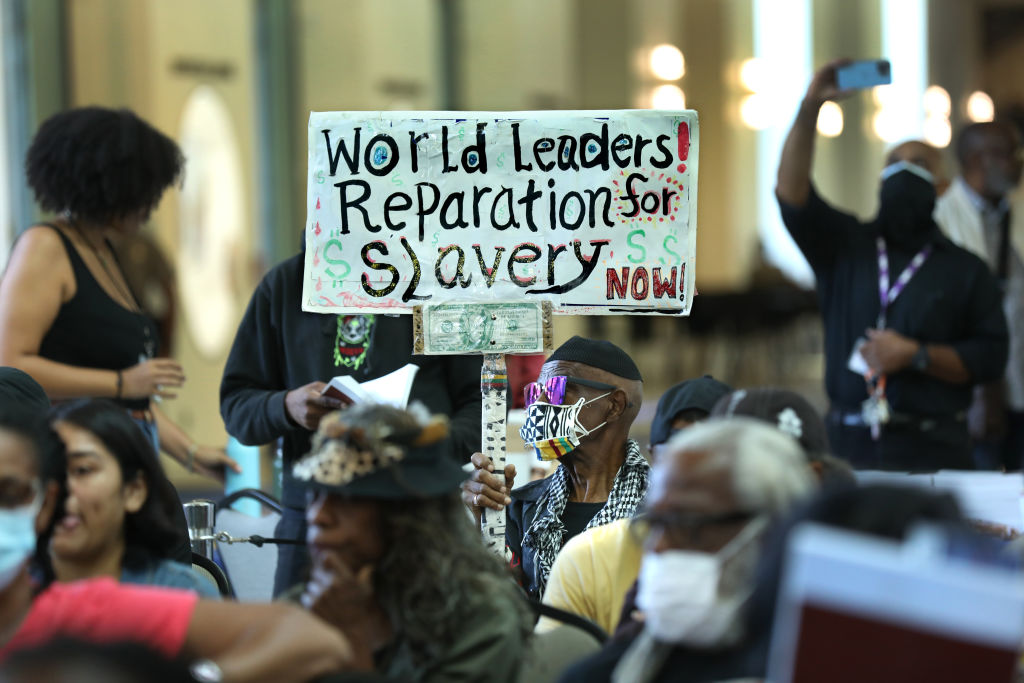
Source: Carolyn Cole / Getty
The state of California has set aside $12 million in reparations funds for its Black residents as restitution for the history of anti-Black oppression that has plagued Black people for the overwhelming majority of our existence in America.
The $12 million included in California’s $300 billion budget is far less than what activists wanted, but it’s also far more than the amount the MAGA world wants to see gifted to Black people anywhere in the country, which is zero.
“Obviously, it’s not enough, but this is the first time ever that reparations for Black people will be a line item in a state budget,” said Chris Lodgson, a reparations activist who lobbied lawmakers to make it all happen, according to the Washington Post.
California’s reparations task force, which was established by the state legislature, actually recommended billions in reparations funding, including $1.2 million in payments for Black Californians over 50 who have lived in the states their whole lives. While the state only ended up approving a fraction of the amount proposed, proponents of the initiative say it’s fortunate even the $12 million total was approved considering the state’s current financial situation, which includes a nearly $50 billion budget shortfall in the coming fiscal year.
“In this tough economic climate, for us to find this money for reparations sends a signal not only to the state but to the nation that California is committed to addressing the harms that are the result of slavery in this country,” said state Sen. Steven Bradford (D).
But it’s not quite safe for state Democrats to call the reparations approval a win as they still have to contend with salty white conservative activists who will certainly fight them tooth and nail before they allow a single Black Californian to receive a check that non-Black Californians don’t also have access to.
From the Post:
Recently, Judicial Watch, a conservative advocacy group, filed a lawsuit to stop the country’s first government-funded reparations program in Evanston, Ill., which had already paid nearly $5 million to 193 of the town’s Black residents. And the Oklahoma Supreme Court recently dismissed a lawsuit by survivors of the 1921 Tulsa Race Massacre seeking reparations.
“In the wake of the Tulsa decision and the Evanston lawsuit, folks have been asking: ‘Is the reparations movement really going anywhere?’” said Trevor Smith, executive director of the BLIS Collective, a nonprofit focused on restitution for Black and Native Americans. “So the fact that California continues to lead the way is really important.”
The state’s reparations effort is still facing resistance from state Republicans and some Latino and Asian lawmakers, who have argued that it’s unfair to make current residents, a majority of whom are people of color, pay for the sins of the state’s White founders.
“Most every Californian, regardless of race or background, comes from a lineage involving immense pain and struggle,” Assemblywoman Kate Sanchez (R) said in a statement. “Singling out just one demographic is extremely problematic and likely unconstitutional. The problems of the past cannot be paid for by the people of today.”
Yeah—it might be true that Black people don’t have a global monopoly on historic oppression, but we’re the only people in America who endured roughly two and a half centuries of slavery followed by another century of legally-sanctioned second-class citizenship.
So, there’s that.

